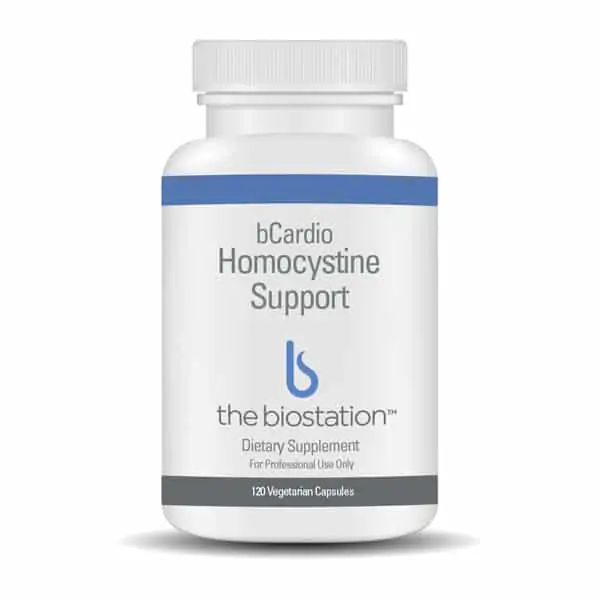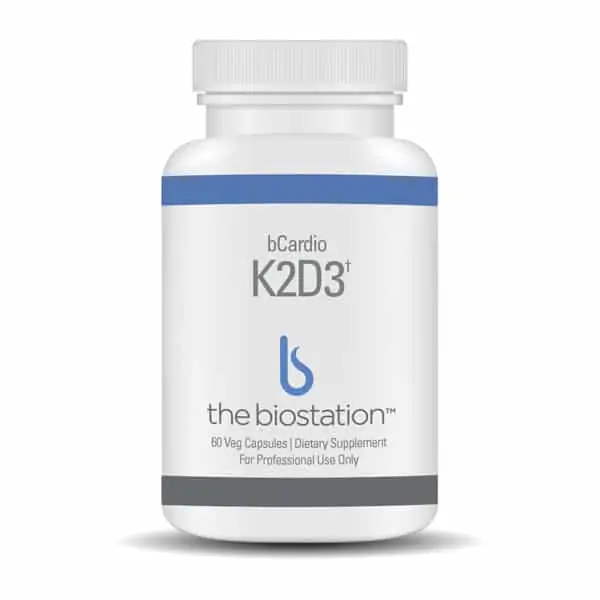bCardio Metabolic Boost
L-Carnitine supplement supplies 340 mg of pure, natural L-carnitine in capsule form.
Functions
L-carnitine is necessary for fatty acid metabolism and energy production in cardiac and skeletal muscle.† It is involved in fatty acid oxidation as part of the carnitine shuttle. L-carnitine shuttles fatty acids from the cytosol (the cell fluid) into the mitochondria (the cell’s powerhouses) for oxidation and energy production. L-carnitine is necessary for muscle whenever fat is utilized as an energy source. Heart muscle always uses fat for its continuous energy demands. Skeletal muscle begins using fat only after its glycogen reserves are exhausted. This happens after about one hour of continuous, strenuous exercise, e.g., long-distance running, bicycling, swimming, or mountain climbing.
L-carnitine assists in the production of energy by the breakdown of fats. So when used in conjunction with a healthy diet and exercise, L-carnitine can enhance weight loss. Research also suggests when L-carnitine is taken with certain other supplements, body mass index is reduced.
Widely distributed in foods from an animal, but not plant sources, L-carnitine is also synthesized by the liver and kidney from two essential amino acids, lysine, and methionine. Human skeletal and cardiac muscles contain relatively high L-carnitine concentrations which they receive from plasma since they are incapable of L-carnitine biosynthesis themselves. About 95 % of the body’s L carnitine stores are located in skeletal and heart muscle. L-carnitine is considered a conditionally essential nutrient. In healthy people, plasma L-carnitine levels are adequately maintained by the body’s own synthesis and dietary sources. However, low L-carnitine plasma levels can be caused by hereditary (primary) L-carnitine deficiency syndrome, or by secondary L-carnitine deficiency. Oral L-carnitine is readily absorbed across the intestinal mucosa and into the bloodstream.
It is then taken up from the portal vein into the liver and subsequently released into the systemic circulation. Most cells have a specific carnitine transporter. Dietary L-carnitine comes mainly from animal foods. Average non-vegetarian diets provide about 100 to 300 mg of L-carnitine per day. Vegetarian diets often provide only trace amounts, since vegetables, fruits, and cereals are negligible sources of L-carnitine.
Category
- healthy weight management
- heart health
L-carnitine may be a useful nutritional adjunct for individuals who wish to support heart muscle function or skeletal muscle performance.
L-Carnitine …………………………………………………………….340 mg
One capsule per day or as directed as a physician. It is recommended that L-carnitine is taken with meals. Capsules may be pulled apart and the powder mixed with food or liquids if desired.
No adverse side effects have been reported.
Store in a cool, dry place, away from direct light. L-carnitine readily takes on moisture from the air. After opening the bottle, replace the lid immediately, and keep the bottle tightly closed as much as possible. Keep out of reach of children.
This information is provided for the use of physicians and other licensed health care practitioners only. This information is intended for physicians and other licensed health care providers to use as a basis for determining whether or not to recommend these products to their patients. This medical and scientific information is not for use by consumers. The dietary supplement products offered by designs for health are not intended for use by consumers as a means to cure, treat, prevent, diagnose, or mitigate any disease or other medical condition.
 East Delray, Florida
East Delray, Florida West Delray, Florida
West Delray, Florida The Boca Raton, Florida
The Boca Raton, Florida Midtown Miami, Florida
Midtown Miami, Florida Carillon Wellness Resort
Carillon Wellness Resort  Williams Island
Williams Island  Midtown Tampa, Florida
Midtown Tampa, Florida Life Time
Life Time Grand Wailea
Grand Wailea  NOW OPEN
NOW OPEN  COMING SOON
COMING SOON 

